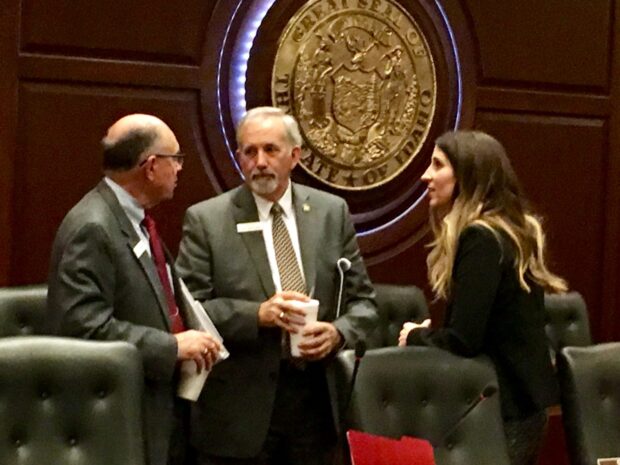The third year — and possibly final year — of the Legislature’s science standards debate could come to closure next week.
The Senate Education Committee spent an hour taking public testimony on science standards Wednesday afternoon. As expected, the committee took no action. There is no date set for a vote, but it appears likely that the committee will vote next week.

Wednesday’s public hearing was more of the same, as senators heard another round of one-sided testimony. More than a dozen people testified — including teachers, parents, students and business lobbyists — and every speaker supported passing the controversial science standards in full, including references to climate change and fossil fuels.
But senators also spent some time drilling down into the finer details of the standards, and especially wording that their House counterparts rejected one week ago. The House Education Committee rejected one science standard, referring to air pollution and fossil fuels, and about a dozen pages of “supporting content” that refer to climate change.
The final product is important, because it provides a minimum baseline for science instruction across the state. Schools and teachers can delve into more detail, but many districts adhere closely to state academic standards.
Most of the standards have been approved without controversy. But the three-year-old debate at the Statehouse has centered on climate change — and what the science standards should say on the matter. Lawmakers have deleted language referring to climate change, forcing a State Department of Education to reconvene a committee of 19 educators to rewrite the standards last spring. But the rewrite still didn’t pass muster with House Education, which voted 12-4 to edit the standards even further.
But in essence, the process starts over in the Senate. The Senate can override the House’s action if it votes to adopt the standards in full.
Speakers urged senators to do just that, saying schools need to teach students about issues such as climate change.
“How are we to address and solve problems if we don’t know what they are or what caused them?” said Veronica Richmond, a 12-year-old student at the Treasure Valley Math and Science Center.
“It is important that students have an understanding of the issues,” said Trent Clark, a former state Republican Party chairman who now lobbies for Monsanto.
Richmond and Clark were among several speakers who also testified before House Education earlier this month, when the committee heard unanimous testimony in favor of the standards. But while the House Education hearings were tense — with Chairwoman Julie VanOrden reprimanding several speakers for testifying on climate change, and gaveling down one Boise State University professor in the middle of his testimony — the Senate hearing took on a lighter tone. Vice Chairman Steven Thayn, R-Emmett, gently urged speakers to stay close to a three-minute time limit, and otherwise gave speakers free rein to express their opinions.
Some of the testimony, and some of the question-and-answer session, focused on the supporting content deleted in the House.
The content can be a “huge help” to teachers, said Chris Taylor, a Boise School District science and social studies supervisor who worked on the committee that rewrote the standards. The standards spell out what students need to know to master the sciences, but the supporting content shows educators what they need to teach in order to help their students achieve mastery.
The supporting content is a bridge from science classes that focused on memorization to classes that emphasize critical thinking, said Duncan Robb, state superintendent Sherri Ybarra’s legislative liaison. Robb emphasized that Ybarra supports the standards in full.
“It’s what those educators (who) have been working on this for three years have chosen to present to the Legislature,” Robb said.
